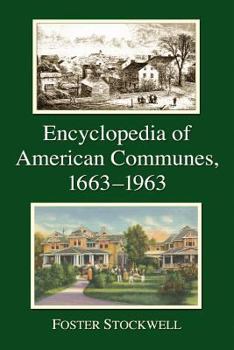Encyclopedia of American Communes, 1663-1963
Select Format
Select Condition 
Book Overview
Swanendael, the first communal experiment in America, was established in 1663 by Mennonites from Holland. The scant records available on the community show that 41 people, led by Pieter Cornelisz Plockhoy, settled in an area near Lewes, Delaware, in the late summer. These "souls," as they were called, shared all things in common, refused to keep slaves, practiced religious toleration for all but Catholics and "stiff-necked Quakers," and had the first free school in the New World. The opening of the New World made America the ideal location for many experimental communities. Its unspoiled and inexpensive land encouraged social experimentation and as a result most of the world's communes have been established in the United States. This encyclopedia details the more than 500 communes established in America, from Swanendael (1663) through Tolstoy Farm, founded in 1963. Entries include the name of the commune, the years it operated, the community's leaders, a brief history, a discussion of extant buildings or artifacts, and sources for further study.
Related Subjects
Political Science Politics & Social Sciences Reference Religion Religion & Spirituality




